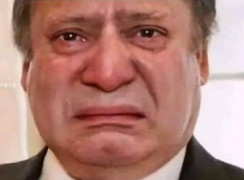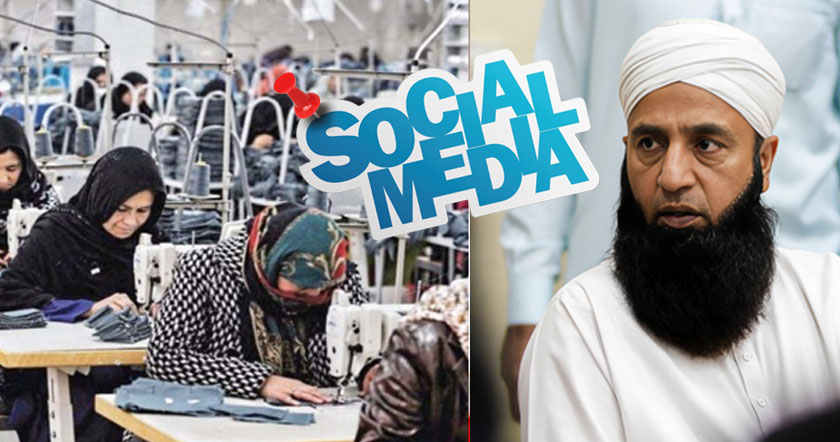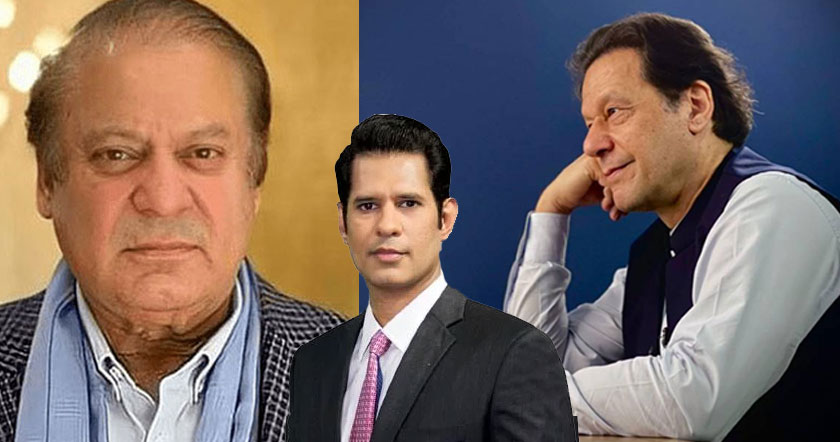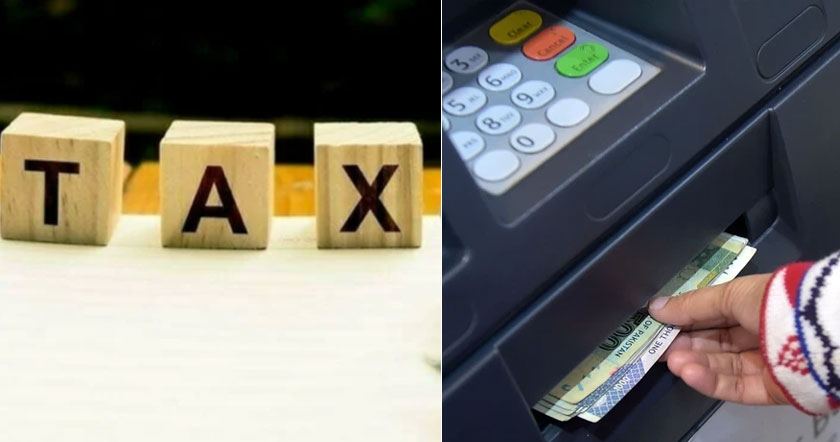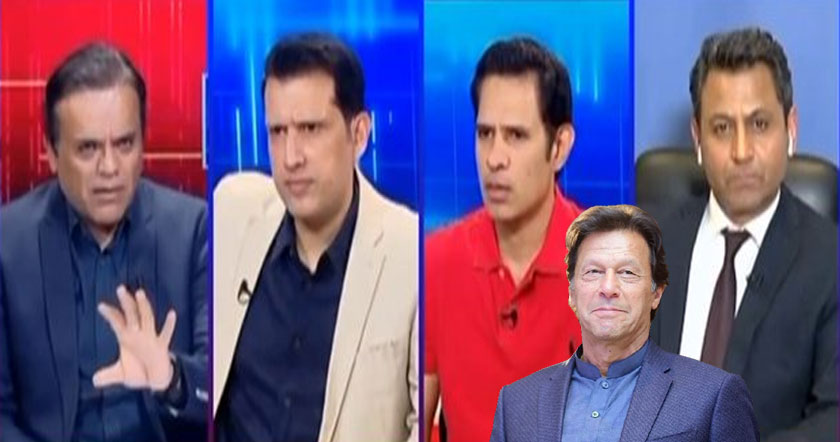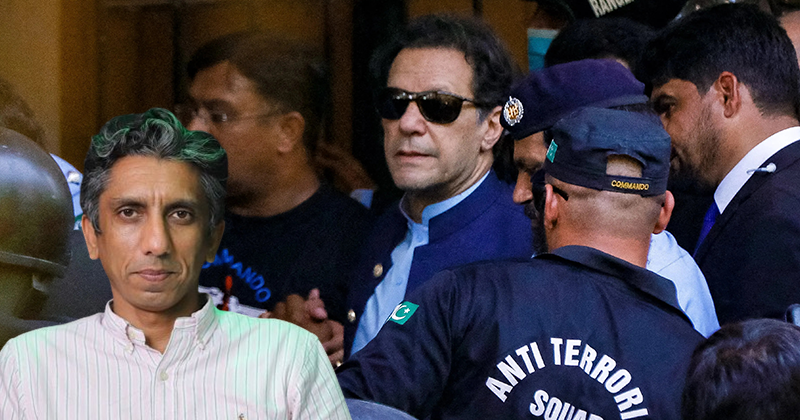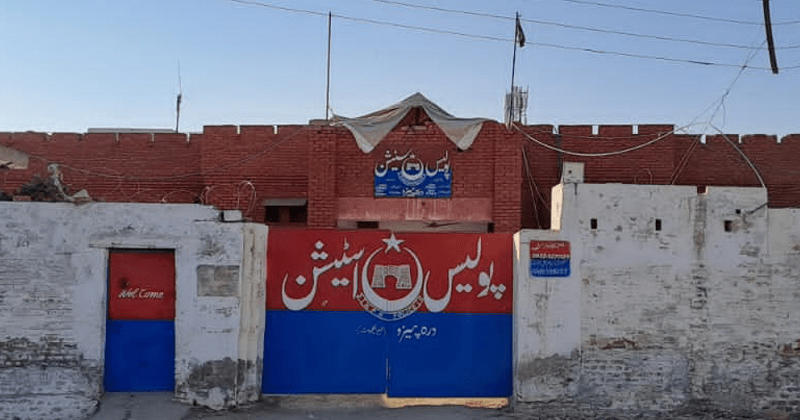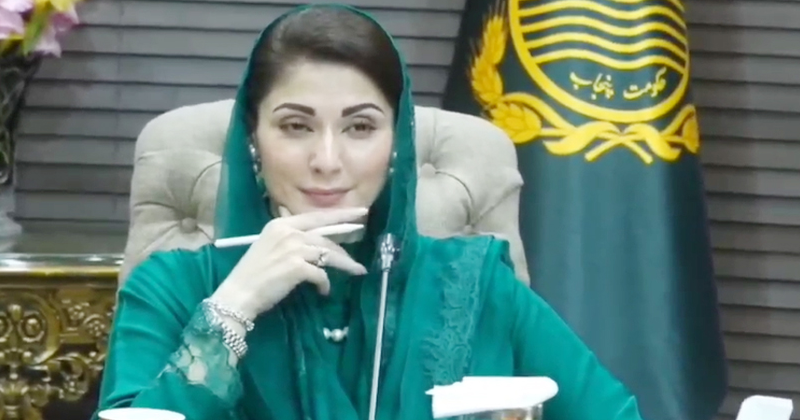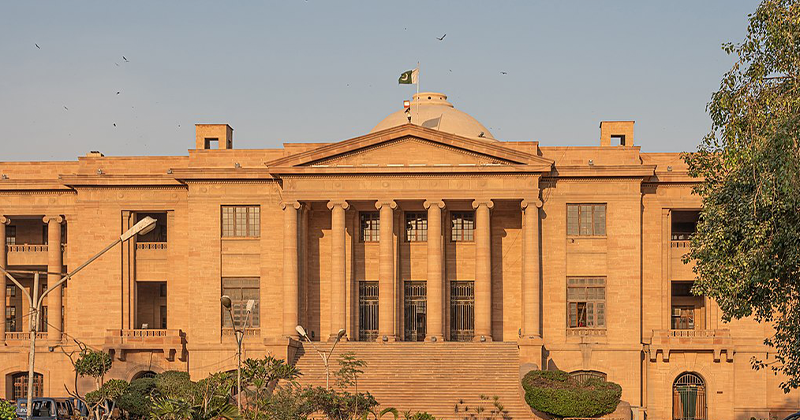The Berlin Wall Is Long Gone. Now a New Divide Threatens Europe
By Donna Abu-Nasr (May 20, 2016 12:36 PM PKT)
The wall that divided Berlins Sonnenallee partitioned the world between east and west for three decades. Today, the danger is posed by a barrier between two cultures.
In whats known locally as Arab Street, Syrian women with headscarves pick out green almonds and the spinach-like mulukhiya they need for stews they used to make back home in Aleppo or Homs. Men smoke water-pipes in shisha bars. A pastry shop advertises specialties from Idlib. In a little more than a year since the first major influx of Syrian asylum seekers into the German capital, Arabic has displaced German and Turkish.
"Ive never seen it like this before," said Mohammed Zamout, 40, a manager at a chicken restaurant from Lebanon. He has lived in Berlin for half his life and watched Sonnenallee turn into a slice of Beirut or Damascus from a relic of the German Democratic Republic.
Since the attacks by home-grown Islamic extremists in Paris and Brussels, the collision between devout refugees and their secular hosts has engendered mutual suspicion and mistrust. While the benign scene in Berlin reflects the mix of cultures and cuisines found in most major cities, it also represents the challenge to the liberal democracies of postwar Europe as they balance strategic and humanitarian goals with the demands of their increasingly restless and resentful electorates.
Breeding Ground
As opponents call to shut Germanys borders after more than 1 million refugees arrived last year, Chancellor Angela Merkel has said integration is the biggest challenge facing the country.
Interviews with Muslims in Berlin, Brussels and Vienna showed how many are not able to integrate, not willing, or simply dont know how to. Some said they feared their faith would be diluted and their children corrupted, leading to a proliferation of Islamic kindergartens in some places. Others said they feel blamed for the deadly actions of the few.

Pedestrians walk down Sonnenallee in Berlin.
Photographer: Carsten Koall/Getty Images
We have to avoid at any cost the creation of subcultures or ghettos because, in the worst case, they can become the perfect breeding ground for radicalism," Markus Ziener, an academic in Berlin whose close friend removed her son from elementary school off Sonnenallee because the other kids didnt speak German. To a certain degree we have already failed at doing so if we look at certain areas in Berlin and other places.
Its something that Syrian asylum seeker Firas Alshater is trying to counter. He became known as the hugging man in Berlin after a stunt whereby he stood blindfolded in the busy central square of Alexanderplatz with a sign saying he was a Muslim refugee and people should embrace him. Many did, he said.
Kissing Couples
Whats tougher is convincing new arrivals from the Arab world that integrating isnt a compromise, but a necessity. Many of those who came here took part in a revolution back home, Alshater, 25, who came to Germany three years ago, said over a jam-filled Berliner donut and coffee. They want freedom and democracy, but they wont give their people freedom and democracy.
A major problem, Muslims say, is that most imams come from outside Europe, including the Middle East, dont speak the local language and arent familiar with the issues that Muslims in Europe face on a daily basis. They range from tolerating public displays of affection to alcohol and drugs, albeit in a society that gives them shelter and refugees a monthly adult stipend of at least 400 euros ($450).

Hasna Fadl, a Syrian asylum-seeker, arrived in Berlin a few months ago. Theres one aspect of normal European life that she worries will influence her 4-year-old daughter. She was on the subway one day when the child giggled and pointed out a German couple kissing. In her village outside Damascus, such a scene would be unimaginable.
Having nobody to turn to for guidance, Fadl, 42, taught her to say nicht gut, not good in German every time she sees men and women in each others laps.
They teach them to like these things everywhere, on the street, on TV, in sex education in schools, said Fadl, at a Berlin social center where she chats with other Syrians.
Allah Calling
Sakina Ali, 45, another Syrian refugee, thought shed found a solution to Berlins absence of muezzins, the mosque servants calling worshipers to prayer across the Muslim world: she added an app to her phone. One day on the subway, she sat next to a German man, music seeping through his earphones. When her phone called her to prayer, the man jumped and poked her to silence it.
Why does he have the right to listen to music and I dont have the right to listen to the word of Allah? said Ali as she stood with Fadl under a tree at the social center. "I was very upset.
A recent report found there were more than 150 Islamic kindergartens in Vienna
Hassan Abied, a Belgian educator of Moroccan origin, said he sees a lot of youths grappling with the same issues in Brussels. Sipping Moroccan tea across the street from the apartment in the district of Schaerbeek where bomb-making materials were found, Abied said theres a conflict between life inside and outside the home.
Youths ask him if its okay to be in mixed-gender schools because at home theyre told the sexes shouldnt mix. Hes asked if they should leave the table when a friend orders alcohol, or whether elections are banned like some clerics say. They then end up turning to the Internet for answers and are more likely to run into radicals, he said.
"Some youths ask if their Islam is lacking because they dont live in a Muslim country and do things they feel contradict their Islam," said Abied. "Theres no dialog between the children and their fathers on this and the clerics only talk about praying and fasting in their sermons without tackling such social issues."
Such things could be ironed out more easily with a brand of Islam that has European roots, Khalid El Abdaoui, 43, who is studying for a doctorate degree in Islamic studies at the University of Vienna, 400 miles south of Berlin.
The trouble is that idea scares many people because they think they will end up with Islam light, El Abdaoui said, sipping warm chocolate at a cafe in central Vienna, where the regulars included Sigmund Freud and Leon Trotsky. Others say its an American-Jewish conspiracy. This fear is irrational."
In Austria, where the government requires orientation courses for refugees, the focus now is on ensuring that early childhood education doesnt foster that notion of them-and-us.
Radical Kindergartens
A recent government-funded report by Ednan Aslan, a Turkish-Austrian professor of Islamic studies at the University of Vienna, found there were more than 150 Islamic kindergartens in the city. Some of the schools, which get state financing, have been indoctrinating students with extremist views, such as rejecting Europeans as infidels, it said.
The problem with the kindergartens is that integration is held back by ideology, said Martin Kienl, a senior official at the Ministry for Integration. Religion can play a positive role in decreasing radicalization, he said.
Born in Austria to Egyptian parents, Ranja Ebrahim, 31, trains religious-education teachers in Vienna so Islam can be compatible with being an Austrian.
Its not helpful to have those kindergartens as far as integration is concerned because those kids never enter Austrian communities, they never learn the language, they never learn the culture, she said at the university in Vienna where shes completing a doctorate in Islamic studies.
Back in Sonnenallee, the smells of roast chicken and Lebanese-style thyme-topped pizzas wafted in the air as Syrian refugees enjoyed a brunch of falafel and mashed broad beans, the songs of Lebanese diva Fairouz playing in the background.
Zamout, the restaurant manager, rejected comparisons to Molenbeek, saying Muslims in Germany have been treated better than in some other European countries. "According to the law, Im equal to the Germans," said Zamout. "I dont feel any racism. I feel at home."
Marko Babe, 49, whos watched the street change character over 25 years, said while refusing asylum seekers in Germany "is wrong," the emergence of parallel societies is just not good for business.
"There are some 80-, 90-year-old ladies who are now afraid to come to Sonnenallee. They see another population, they feel strange," said Babe. "The solution," he said, "is acceptance on both sides."
With assistance from Chad Thomas and Boris Groendahl.
http://www.bloomberg.com/news/artic...s-long-gone-now-a-new-divide-threatens-europe
By Donna Abu-Nasr (May 20, 2016 12:36 PM PKT)
The wall that divided Berlins Sonnenallee partitioned the world between east and west for three decades. Today, the danger is posed by a barrier between two cultures.
In whats known locally as Arab Street, Syrian women with headscarves pick out green almonds and the spinach-like mulukhiya they need for stews they used to make back home in Aleppo or Homs. Men smoke water-pipes in shisha bars. A pastry shop advertises specialties from Idlib. In a little more than a year since the first major influx of Syrian asylum seekers into the German capital, Arabic has displaced German and Turkish.
"Ive never seen it like this before," said Mohammed Zamout, 40, a manager at a chicken restaurant from Lebanon. He has lived in Berlin for half his life and watched Sonnenallee turn into a slice of Beirut or Damascus from a relic of the German Democratic Republic.
Since the attacks by home-grown Islamic extremists in Paris and Brussels, the collision between devout refugees and their secular hosts has engendered mutual suspicion and mistrust. While the benign scene in Berlin reflects the mix of cultures and cuisines found in most major cities, it also represents the challenge to the liberal democracies of postwar Europe as they balance strategic and humanitarian goals with the demands of their increasingly restless and resentful electorates.
Breeding Ground
As opponents call to shut Germanys borders after more than 1 million refugees arrived last year, Chancellor Angela Merkel has said integration is the biggest challenge facing the country.
Interviews with Muslims in Berlin, Brussels and Vienna showed how many are not able to integrate, not willing, or simply dont know how to. Some said they feared their faith would be diluted and their children corrupted, leading to a proliferation of Islamic kindergartens in some places. Others said they feel blamed for the deadly actions of the few.

Pedestrians walk down Sonnenallee in Berlin.
Photographer: Carsten Koall/Getty Images
We have to avoid at any cost the creation of subcultures or ghettos because, in the worst case, they can become the perfect breeding ground for radicalism," Markus Ziener, an academic in Berlin whose close friend removed her son from elementary school off Sonnenallee because the other kids didnt speak German. To a certain degree we have already failed at doing so if we look at certain areas in Berlin and other places.
Its something that Syrian asylum seeker Firas Alshater is trying to counter. He became known as the hugging man in Berlin after a stunt whereby he stood blindfolded in the busy central square of Alexanderplatz with a sign saying he was a Muslim refugee and people should embrace him. Many did, he said.
Kissing Couples
Whats tougher is convincing new arrivals from the Arab world that integrating isnt a compromise, but a necessity. Many of those who came here took part in a revolution back home, Alshater, 25, who came to Germany three years ago, said over a jam-filled Berliner donut and coffee. They want freedom and democracy, but they wont give their people freedom and democracy.
A major problem, Muslims say, is that most imams come from outside Europe, including the Middle East, dont speak the local language and arent familiar with the issues that Muslims in Europe face on a daily basis. They range from tolerating public displays of affection to alcohol and drugs, albeit in a society that gives them shelter and refugees a monthly adult stipend of at least 400 euros ($450).

Hasna Fadl, a Syrian asylum-seeker, arrived in Berlin a few months ago. Theres one aspect of normal European life that she worries will influence her 4-year-old daughter. She was on the subway one day when the child giggled and pointed out a German couple kissing. In her village outside Damascus, such a scene would be unimaginable.
Having nobody to turn to for guidance, Fadl, 42, taught her to say nicht gut, not good in German every time she sees men and women in each others laps.
They teach them to like these things everywhere, on the street, on TV, in sex education in schools, said Fadl, at a Berlin social center where she chats with other Syrians.
Allah Calling
Sakina Ali, 45, another Syrian refugee, thought shed found a solution to Berlins absence of muezzins, the mosque servants calling worshipers to prayer across the Muslim world: she added an app to her phone. One day on the subway, she sat next to a German man, music seeping through his earphones. When her phone called her to prayer, the man jumped and poked her to silence it.
Why does he have the right to listen to music and I dont have the right to listen to the word of Allah? said Ali as she stood with Fadl under a tree at the social center. "I was very upset.
A recent report found there were more than 150 Islamic kindergartens in Vienna
Hassan Abied, a Belgian educator of Moroccan origin, said he sees a lot of youths grappling with the same issues in Brussels. Sipping Moroccan tea across the street from the apartment in the district of Schaerbeek where bomb-making materials were found, Abied said theres a conflict between life inside and outside the home.
Youths ask him if its okay to be in mixed-gender schools because at home theyre told the sexes shouldnt mix. Hes asked if they should leave the table when a friend orders alcohol, or whether elections are banned like some clerics say. They then end up turning to the Internet for answers and are more likely to run into radicals, he said.
"Some youths ask if their Islam is lacking because they dont live in a Muslim country and do things they feel contradict their Islam," said Abied. "Theres no dialog between the children and their fathers on this and the clerics only talk about praying and fasting in their sermons without tackling such social issues."
Such things could be ironed out more easily with a brand of Islam that has European roots, Khalid El Abdaoui, 43, who is studying for a doctorate degree in Islamic studies at the University of Vienna, 400 miles south of Berlin.
The trouble is that idea scares many people because they think they will end up with Islam light, El Abdaoui said, sipping warm chocolate at a cafe in central Vienna, where the regulars included Sigmund Freud and Leon Trotsky. Others say its an American-Jewish conspiracy. This fear is irrational."
In Austria, where the government requires orientation courses for refugees, the focus now is on ensuring that early childhood education doesnt foster that notion of them-and-us.
Radical Kindergartens
A recent government-funded report by Ednan Aslan, a Turkish-Austrian professor of Islamic studies at the University of Vienna, found there were more than 150 Islamic kindergartens in the city. Some of the schools, which get state financing, have been indoctrinating students with extremist views, such as rejecting Europeans as infidels, it said.
The problem with the kindergartens is that integration is held back by ideology, said Martin Kienl, a senior official at the Ministry for Integration. Religion can play a positive role in decreasing radicalization, he said.
Born in Austria to Egyptian parents, Ranja Ebrahim, 31, trains religious-education teachers in Vienna so Islam can be compatible with being an Austrian.
Its not helpful to have those kindergartens as far as integration is concerned because those kids never enter Austrian communities, they never learn the language, they never learn the culture, she said at the university in Vienna where shes completing a doctorate in Islamic studies.
Back in Sonnenallee, the smells of roast chicken and Lebanese-style thyme-topped pizzas wafted in the air as Syrian refugees enjoyed a brunch of falafel and mashed broad beans, the songs of Lebanese diva Fairouz playing in the background.
Zamout, the restaurant manager, rejected comparisons to Molenbeek, saying Muslims in Germany have been treated better than in some other European countries. "According to the law, Im equal to the Germans," said Zamout. "I dont feel any racism. I feel at home."
Marko Babe, 49, whos watched the street change character over 25 years, said while refusing asylum seekers in Germany "is wrong," the emergence of parallel societies is just not good for business.
"There are some 80-, 90-year-old ladies who are now afraid to come to Sonnenallee. They see another population, they feel strange," said Babe. "The solution," he said, "is acceptance on both sides."
With assistance from Chad Thomas and Boris Groendahl.
http://www.bloomberg.com/news/artic...s-long-gone-now-a-new-divide-threatens-europe


